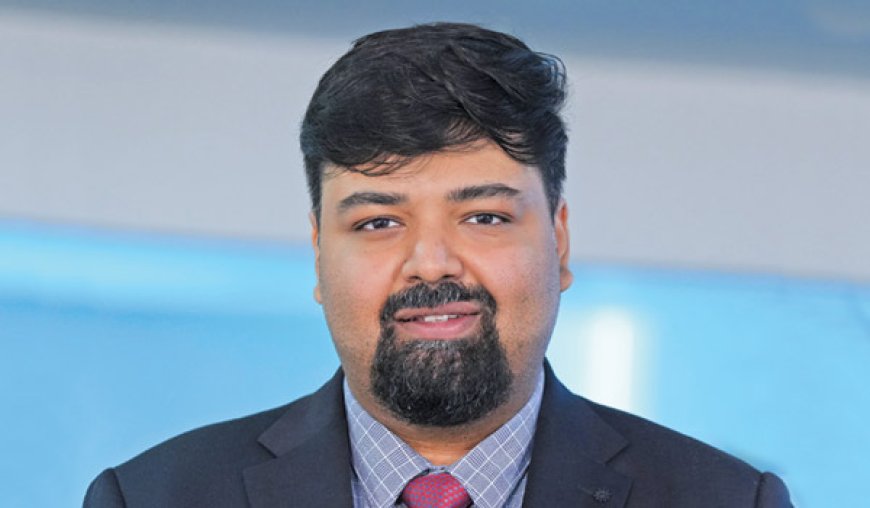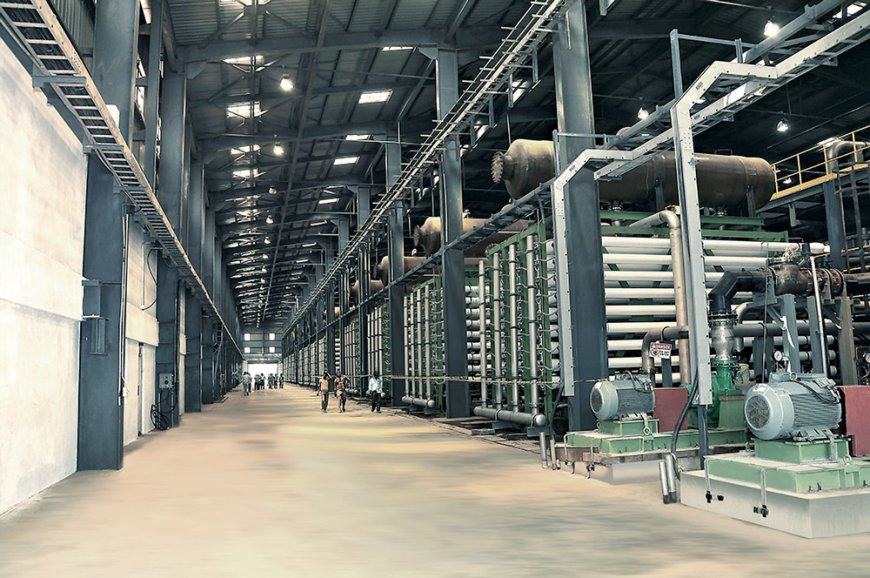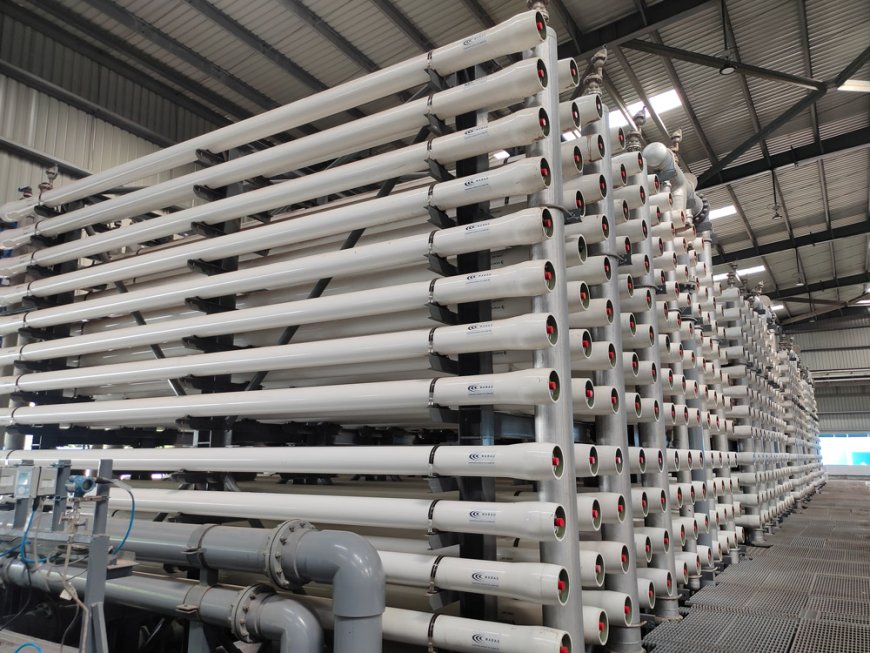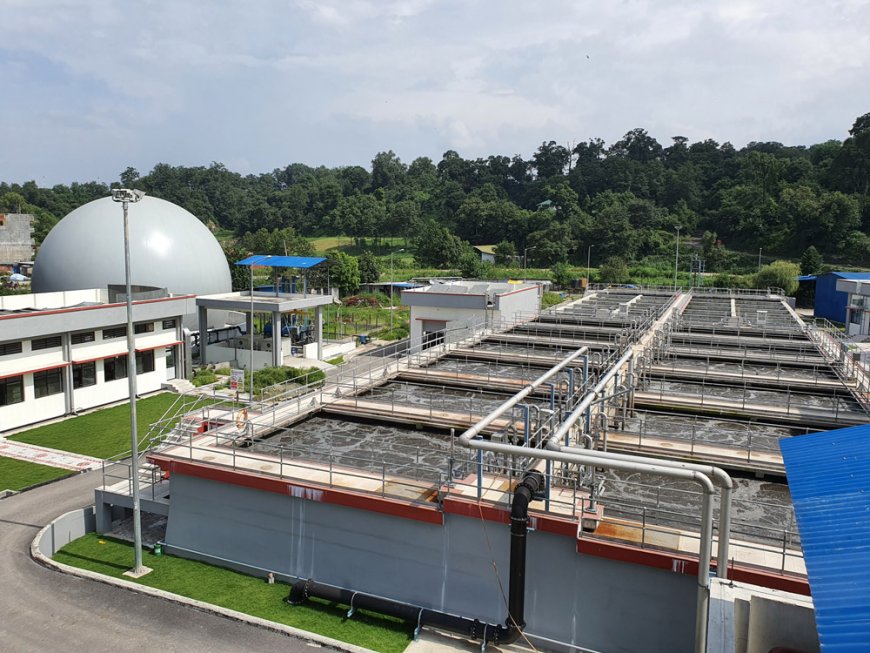WABAG has been at the forefront of water recycling and reuse.

Rohan Mittal
Head - Strategy & Business Growth, GCC, VA Tech Wabag Ltd
How challenging is the current scenario of water demand-supply in India?
India’s demand-supply scenario for water is highly challenging, driven by rapid urbanization, industrial growth, population expansion, and the growing impact of climate change. Despite hosting 18% of the global population, the country holds only 4% of the world’s water resources, making it one of the most water-stressed nations. By 2030, it is projected that water demand could outstrip supply by twofold, leading to significant economic and social repercussions.
Another critical issue is non-revenue water (NRW), where nearly 40% of the water is lost through leakages during distribution in major cities. Addressing this can significantly improve water availability for both domestic and industrial use.
Industries, particularly those in water-intensive sectors like manufacturing, textiles, oil and gas, and energy, are grappling with increased water demand and facing operational disruptions due to shortages. Ensuring water security for these industries is crucial to sustaining economic growth, emphasizing the urgent need for adopting sustainable water management practices across all sectors.

How important is bringing in awareness about water security among consumers?
Raising awareness about water security is crucial for ensuring the sustainability of water resources for future generations.
A key focus should be on changing consumer behaviour. Households, which contribute significantly to water wastage through inefficient practices, can make a substantial impact by fixing leaks, adopting water-efficient appliances, and practicing rainwater harvesting. Given the increasing scarcity of water, it's essential for people to recognize its value and use it wisely. Monetizing water will reinstate the value of water and thereby will encourage responsible consumption.
Industries, which account for a large share of water consumption, must adopt sustainable practices such as recycling, reuse, and desalination to address water scarcity.
How is the progress of water infrastructure development in the country? What kind of improvements are needed?
The creation of the Ministry of Jal Shakti in 2019 was a key milestone, bringing all water-related policies under one roof for more streamlined execution. One of the flagship initiatives, Jal Jeevan Mission (JJM), has significantly improved access to safe drinking water for millions, while the Namami Gange program focuses on the rejuvenation of the Ganga river, highlighting the government’s commitment to water quality and ecological restoration.
The reuse of treated wastewater is becoming increasingly critical, with policies promoting Zero Liquid Discharge (ZLD) systems in industries. This aligns with the National Framework on Recycle & Reuse, recognizing treated wastewater as a valuable resource. Desalination, too, is gaining importance as a sustainable solution, especially in coastal regions, with NITI Aayog exploring desalination to mitigate stress on traditional water sources.
However, improving water distribution efficiency remains a key area for development, as existing systems experience significant losses. Enhancing private sector involvement, adopting advanced technologies, and strengthening community engagement will be crucial to bridging the gap between water supply and demand. As India continues its journey toward sustainable development, the water sector is poised for further growth and transformation.

Can you elaborate on the company’s major projects in desalination and wastewater recycling?
WABAG has pioneered the concept of ‘Manufactured Water’, which encompasses both desalination and water reuse & recycling to address the pressing challenges of water scarcity. This innovative approach ensures that water produced from alternative sources meets the highest quality standards, making it a viable, reliable, affordable, and sustainable resource. The WABAG-built plants are recycling over 2.7 million cubic meters of used water daily and desalinating sea-water to produce over 1.3 million cubic meters of clean water every day.
WABAG has been at the forefront of several key water recycling projects in India and internationally. One of our flagship projects is the 45 MLD Koyambedu TTRO plant in Chennai, with a 60 km pipeline supplying treated water to four major industrial hubs in the SIPCOT region. This plant conserves over 1,400 crore liters of freshwater annually, safeguarding Chennai’s natural water resources. Additionally, we are nearing completion of a 40 MLD TTRO plant in Ghaziabad, which will provide a continuous and reliable supply of high-quality water to industries in the Shahibabad industrial area.
In the desalination space, WABAG ranks as the 5th largest desalination company globally. Among our marquee projects is the 400 MLD SWRO plant in Chennai, set to be the largest desalination facility in South East Asia. Our 110 MLD Nemmeli Desalination Plant, also in Chennai, is one of India’s largest municipal desalination facilities for potable use, delivering reliable drinking water to over 10 lakh residents in Chennai. We have also executed captive desalination plants for major industries such as Reliance Industries and MRPL. Globally, WABAG has executed over 50 desalination plants, bolstering water security in coastal regions.

How is water recycling and reuse gaining prominence today in potable and non-potable water segments?
WABAG has been at the forefront of water recycling and reuse, having developed a Direct Potable Reuse (DPR) plant in Namibia, which has been operational for the past two decades. This plant employs multi-barrier technologies, ensuring reliable drinking water for approximately 35% of Windhoek's population and significantly improving the city's quality of life. In Singapore, WABAG has been a trusted partner of PUB Singapore, supporting their water reuse initiative, ‘NEWater’.
In India, WABAG's Koyambedu TTRO plant utilizes advanced technologies to produce water equivalent to potable quality standards. High-level visitors hosted at the plant have even confidently consumed the treated water, demonstrating the trust in its quality. It is only a matter of time before such models gain wider acceptance, breaking traditional mind-sets.
As our Chairman and Managing Director, Rajiv Mittal, aptly states, “Water is too precious to be used just once.” We must promote water reuse models like those in Namibia, Singapore, and Chennai to address the global water crisis.
What is your vision on sustainable water infrastructure? What are your future plans?
At WABAG, our vision is to provide ‘Sustainable solutions for a better life’, promoting advanced technologies such as water reuse, desalination, and resource recovery based circular economy. As a Pure-play water technology company, we focus on enhancing the sustainability of the plants that we build, leveraging our 125+ in-house patented technologies. These innovations help reduce the construction footprint, lower energy consumption, and providing better quality water to even come up to parts per billion (PPB)—a critical requirement for ultra-modern industries like Green Hydrogen and semiconductors.







